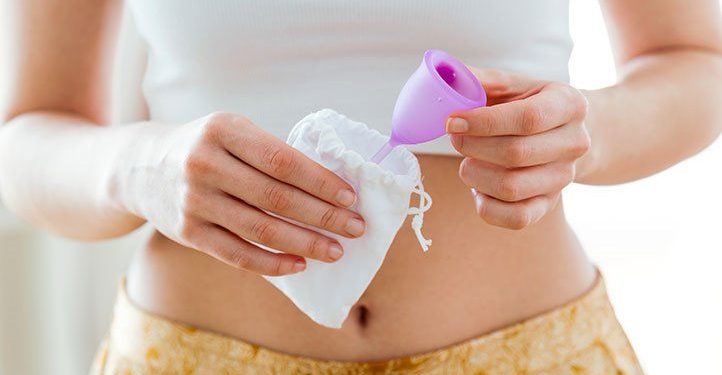To avoid germs, you should clean your menstrual cup every day. To clean it, add a little vinegar to hot water. This solution is safe for use and is a natural antibacterial agent. White vinegar is also very useful for cleaning. Just add a few drops to the water before use. If you do not have white vinegar, you can use water that contains some alcohol.
Sanitising a menstrual cup
There are several ways to sanitise a menstrual cup. One way is to soak it in rubbing alcohol. It can be done by using the proper solution, a diluted half-water-to-vinegar ratio. Another option is to use lemon juice. After cleaning the cup, rinse it well. Avoid using hydrogen peroxide, which can cause harmful reactions. The most effective way is to boil the cup for about 5 to 10 minutes.
Before using your menstrual cup, make sure to rinse the cup thoroughly. If the menstrual cup is not disposable, you can boil it for a few minutes. Allow it to cool before using it again. Some menstrual cup brands also sell sterilising solutions that you can use. A solution of half water and half vinegar will kill bacteria and prevent vaginal irritation. Once sterilised, a menstrual cup can be stored in the pouch provided. Please do not keep them in an air-tight container as this could damage the silicone.
There are many ways to sterilise menstruation cups by Juju. The most effective way is by using clean water, but if you don't have access to a sink or a shower, you can also use sanitising wipes or toilet paper. Another way to sanitise your menstrual cup is to use hydrogen peroxide. To use hydrogen peroxide, you should heat the water until it is boiling and then dip the menstrual cup. Once the cup has cooled, you should dry it with a towel to avoid any possible contamination.
If you prefer not to use a microwave, you can always sterilise your menstrual cup using a collapsible cup steriliser. However, microwave sterilisation is not recommended as it can cause harmful chemicals to enter the body. To avoid this problem, make sure you use a microwave-proof container. The microwave sterilisation time depends on the wattage of your microwave and the amount of water you use.
When you are done using a menstrual cup, you should store it in a dry place. It is because moisture can encourage bacteria to grow and cause irritation in the vagina. A better option is to use breathable containers to store your cup.
Using alcohol-based wipes
Menstrual cups should be cleaned with a gentle cleanser or water. Some manufacturers sell special menstrual cup cleaners that are pH balanced and free of fragrance and dye. For an extra clean, you can use water-based intimate wipes. They can also double as a menstrual cup cleaner. To clean your menstrual cup, rinse thoroughly and dry in the bathroom.
Using alcohol-based wipes for cleaning and storing your menstrual cup is not recommended. They can irritate sensitive women and mess with the vaginal pH. Furthermore, they can result in premature deterioration of the cup. Using alcohol-based wipes can also be a waste of money and space. Using alcohol-based wipes can result in a messy mess and an uncomfortable situation for you.
Using alcohol-based wipes is not necessary, however. To store your menstrual cups in an alcohol-based container, follow the manufacturer's instructions for storage.
After sanitising your menstrual cups, it is essential to dry them thoroughly before storing them. Moisture is a breeding ground for bacteria. The moisture in a menstrual cup can transfer to the vagina. To maintain the freshness of your menstrual cup, store it in a dry, cool place. You can wash and store it in a breathable container when you don't need it immediately.
Using white vinegar
To clean your menstrual cups, use a solution of half water and half vinegar. Soaking your menstrual cup in this solution will remove any excess buildup. Once it has cooled, you can use a mild cleanser without alcohol to remove any scum. Finally, dry the menstrual cup with a clean cloth. When you're done, store it in the refrigerator or freezer.
Menstrual cups are easy to clean, and it's essential to follow the manufacturers' instructions as carefully as possible. Rinsing them with water before storing them can help remove bacteria and extend the cup's life. It is advisable to sterilise menstrual cups if they have been exposed to dirt. Besides prolonging their life, proper cleaning and storage can help protect against bacteria.
























